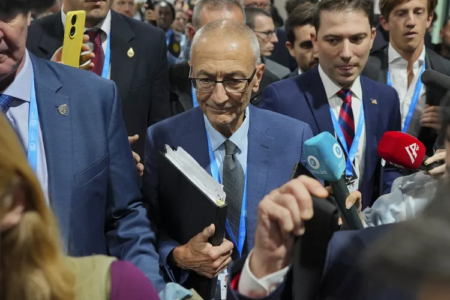The Western world has agreed to pay $300bn a year to finance emissions reduction and climate adaptation in the developing world from 2035, but developing countries from Cuba to India slammed the deal as too little, too late.
The gavel came down on the deal in the middle of the night local time after a tense few days of negotiations.
Climate-vulnerable nations walk out of finance meeting
It has been a tumultuous couple of days where the possibility of talks collapsing has seemed close at times.
Developing countries dismissed as “a joke” an offer on Friday (22 November) by wealthy industrialised nations including the EU, US and Japan of $250bn a year from 2035.
Around 3pm today, a revised proposal saw the offer raised to $300bn according to civil society observers who were in the room.
The ‘least developed countries’ (LDCs) group promptly declared that was unacceptable before the Alliance of Small Island States (AOSIS) joined them in walking out. They later clarified that they hadn’t given up on the finance talks entirely but it was evident their patience was wearing thin.
The G77+China group, which comprises most of Latin America, Africa and Asia, had signalled it would accept a headline figure of $500bn for the ‘new collective quantified goal’ (NCQG) intended to replace the current $100bn annual financing target. But this appears to have been beyond the pale for the wealthy Western nations.
US climate envoy John Podesta was harangued as he left the meeting room following a walk-out by groups representing the world’s least developed country and small island states. Climate campaigners shouted “shame” as they accused the Biden administration of reneging on rhetoric about paying a fair share.




